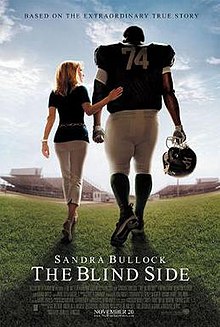Mad Men is one of the most successful shows on Television. The stylish drama about ad men in the 1950’s has won four Golden Globes and been nominated for over 100 other awards. The show artfully deconstructs the myth that that decade was happier or more innocent than our own by showing human lives that are nothing like the era’s advertisements would have us imagine. I watched the Season One finale, which really exemplifies a lot of the themes that can be seen throughout the season.
Some of the most prominent themes in Mad Men are those of commercialism and image. Those often go together, as Walsh and Keesmaat say in Colossians Remixed: “A society directed by the consumerist imperatives of global capitalism is driven by images with a vengeance.” One example of this is the opening credits, which show a well-dressed man jumping off the top of a skyscraper that is made up of gigantic advertisements and falling, floating almost, down into a jumbled mass of lurid squares that are all selling something. Each character in the series is selling something as well; they all hide behind personas they want to have, and no one is as they seem. A poised, beautiful housewife is an emotional wreck, a confident actress is crippled by insecurities, a little boy is a surprisingly old soul. In this episode, titled “The Wheel”, we see many of those façades come crashing down.
Donald Draper, a partner in the advertising firm Sterling-Cooper, has been living a life of multilayered lies. He is an individualist, a “self-made” man. He projects an image of suave security over his many affairs, growing alcoholism, and impoverished background. Along with his image, he has firmly bought into the religion of consumerism. In one scene he tells his co-workers, “bringing in business is the key to your salary, your status and your self-worth”
In one of the final, and often-talked about scenes, Don Draper pitches his idea for a slide projector. He will not call it, as requested, a “wheel” but a “carousel” because the word evokes childhood and simpler times. In a moving speech over soft, stirring music, Draper appeals to the nostalgia of the men as he shows slides of his own picture-perfect family. He explains that the ads will not be selling slide projectors, but pleasant memories of times past. It is a moving speech, and the look on Don’s face as he gives it shows that he is nearly convincing himself. But the truth is that his beautiful wife has recently discovered his affairs and his children are strangers. The businessmen are inspired by his speech and he makes the deal, but the beautiful image he crafted is not true. He drives home that night to find his family gone. Sitting on his steps in the dark with his head in his hands, reality makes a brutal appearance. It is nothing that was shown in the slide show.
This is an episode of brokenness. Every single character is broken. Harry sleeps in the office because his wife won’t let him come home after he had a fling with his secretary. Peggy gives birth to a baby she doesn’t want, and the father, Pete, is married to someone else. This episode does not shy away from the brokenness but lingers on it, until we too feel a pang. Draper, in fact, defines nostalgia as “the pang from an old wound”. We, like him, long for better, simpler, sweeter days. But it’s a longing that hurts because we can’t go back.
Perhaps it is because the story will continue in the next season, or perhaps it is merely the nature of the show, but there is no redemption in this episode. The characters merely change from broken beings shrouded in their own secrets to being laid bare in their brokenness for all of us to see.
But that is life in the empire: people perpetually looking for something to fill them, whether it’s a slide projector to heal their aches, or a weight-loss belt to fill them with confidence, characters look for material things to fill immaterial holes. This show gives us a unique glimpse into this through the way we see the agency blatantly, purposefully sell not products but feelings and emotions. We know, from our jaded perspective, that the “carousel” is nothing but chunk of plastic, but we can’t help hoping the purchase of one may actually, like the advertisement promises, transport us away from our problems and to a place where things are right.
1. Why, in this episode, is the past a more compelling draw than the future or the present?
2. Have we, as a culture, reduced ourselves to products that can be marketed, valued and sold?





